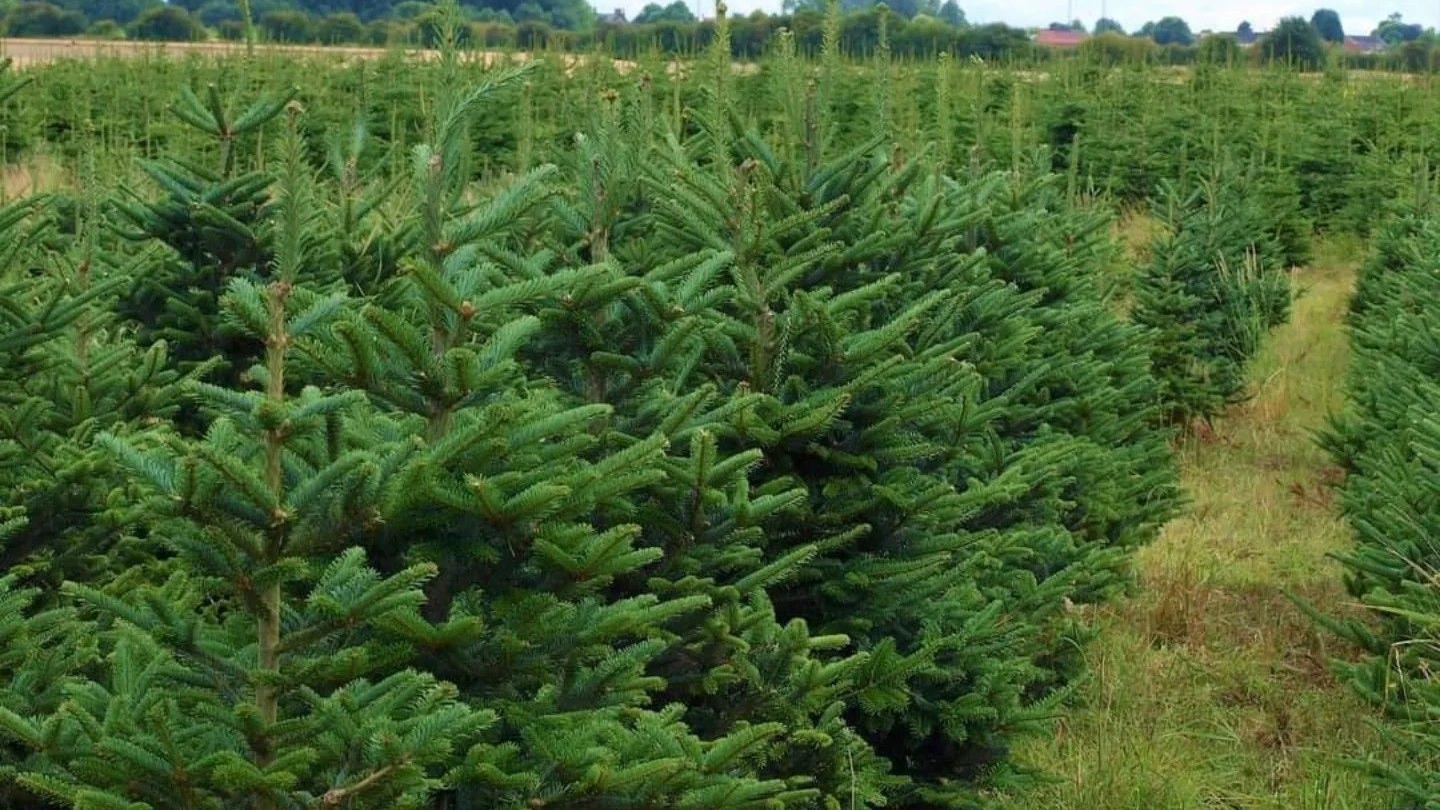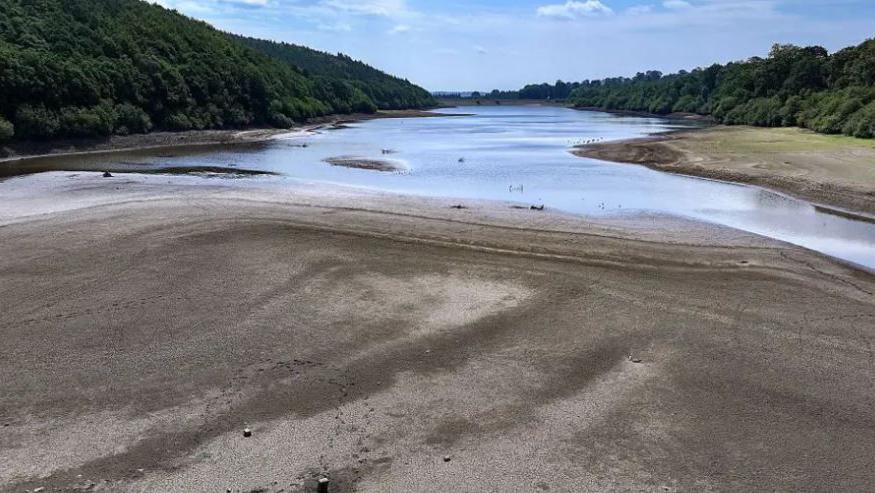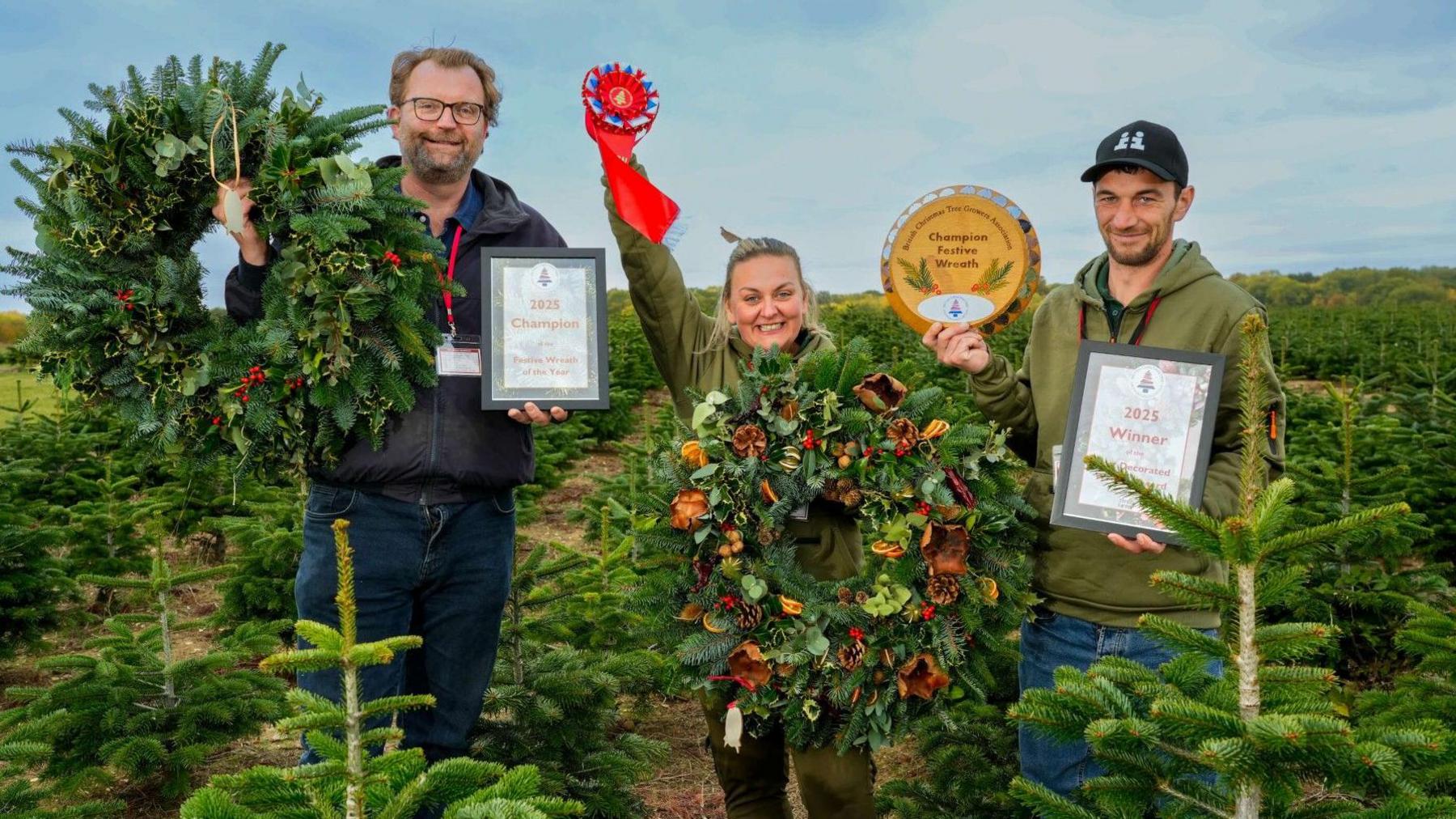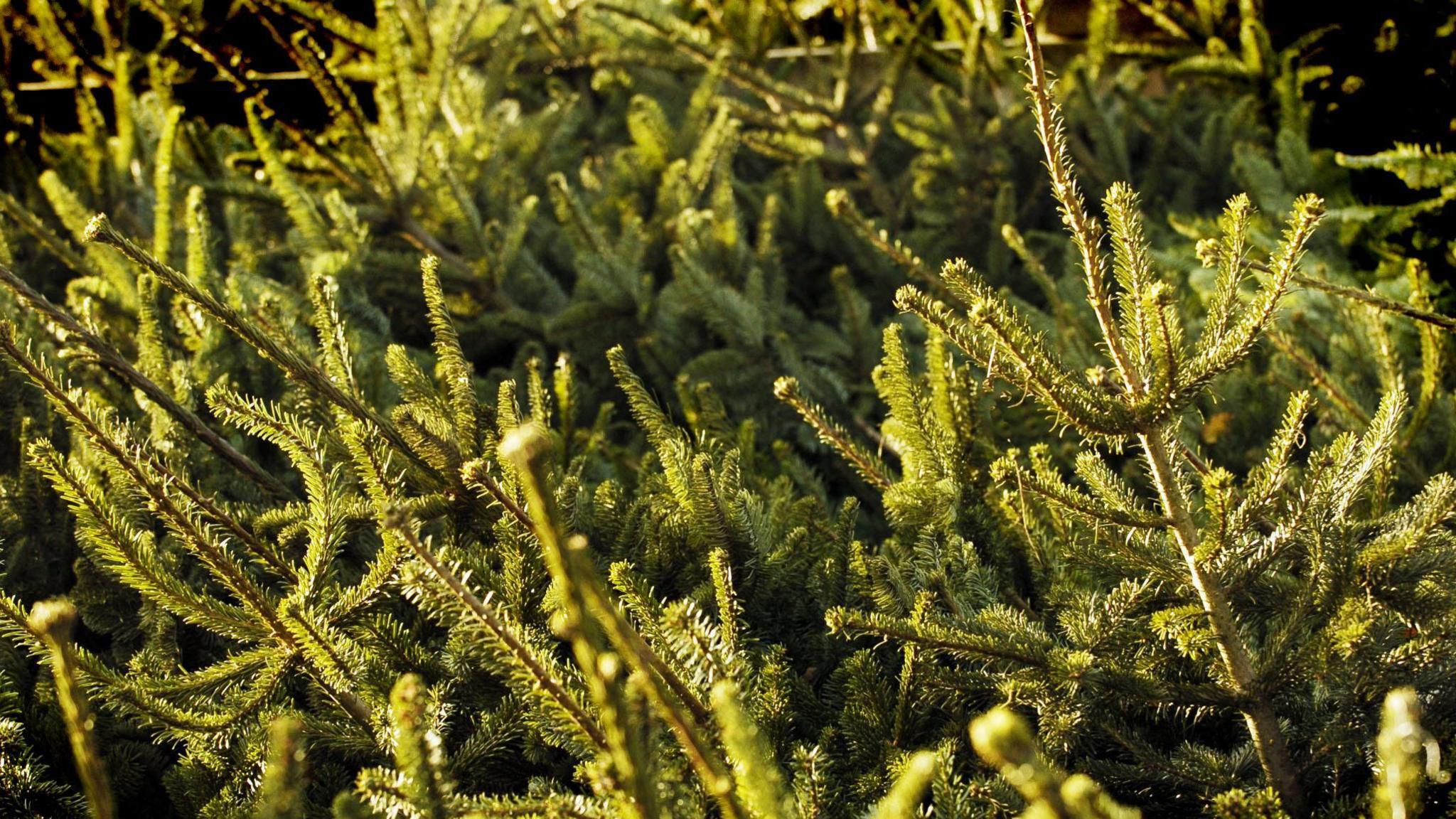Brits told to expect 'gappy' Christmas trees

Drought conditions so soon after an "exceptionally wet" 2024 have resulted in problems for growers
- Published
Britons are being told to expect "gappy" and shorter Christmas trees this year – thanks to volatile weather.
One Lincolnshire grower explained that dry conditions – which triggered domestic hosepipe bans in parts of the UK – had stunted growth, leaving gaps between branches on trees, including spruces and Nordmann firs.
While he made clear "bushy trees" would still be available, he planned to "educate" his customers about the volatility of the climate and the impact on the appearance of trees.
Oliver Combe, from the British Christmas Tree Growers Association (BCTGA), confirmed dry weather after an "exceptionally wet" 2024 had resulted in reduced growth.
Mr Combe, the group's vice-chairman, has been growing trees in North Yorkshire since 1998.
He said: "Last year was really wet – the worst I can remember. That created a lot of problems with nutrient uptake and damage to roots because the trees were sitting in continuously waterlogged soil.
"This year it has been exceptionally dry, certainly in the east of the country. We had no appreciable rain from Easter until the middle of July – the time when trees put their maximum growth on. There was no rain to wash the nutrients in, so that's why we are getting restricted growth."

This year saw reservoirs across Yorkshire reach their lowest levels in decades
Staff at Fillingham Christmas Trees in Gainsborough, Lincolnshire, said "more gappy" trees were the result.
Owner William Rose added: "Christmas trees don't like inconsistency. They might not have as many branches this year but we can't control that. That's nature."
Mr Rose said there would still be "bushy trees" available, pointing out that all trees – whether filled out or not – "still look great".
Explaining why, in his opinion, real trees trumped artificial ones, he said: "It's the joy of coming out to a farm and choosing your tree and, of course, the smell. You don't get that with an artificial tree."
Mr Rose added staff were "educating" customers about the challenges posed by unpredictable weather – a move applauded by the BCTGA.
Shorter tops
Joe Hoyes, owner of Town Gate Farm near Grimsby, agreed that 2025 had been challenging.
He said: "Christmas trees aren't irrigated, so they really do rely on the weather. The lack of rainfall has led to a shortening in growth.
"The top bit of trees, where people put the star, is shorter due to the dry weather preventing growth. There are also fewer 6ft and 7ft trees, also a result of the weather."
Neil Wright, owner of Newsholme Christmas Trees, near Goole, East Yorkshire, said: "This spring, our transplanted trees took a battering because of the lack of rainfall."
He said he was planning to delay planting saplings – a practice already adopted by many Christmas tree growers – to increase the chances of plentiful rainfall.
"We are endeavouring to move transplanting to the autumn, so the trees have winter – and the rainfall – to settle," he said.
But the approach comes with risks, with Mr Wright explaining that trees could die if they have not properly "shut down" for winter.
"It's a very tight window," he added.
Listen to highlights from Lincolnshire on BBC Sounds, watch the latest episode of Look North or tell us about a story you think we should be covering here, external.
Download the BBC News app from the App Store, external for iPhone and iPad or Google Play, external for Android devices
Related topics
Related stories
- Published14 October

- Published18 August
